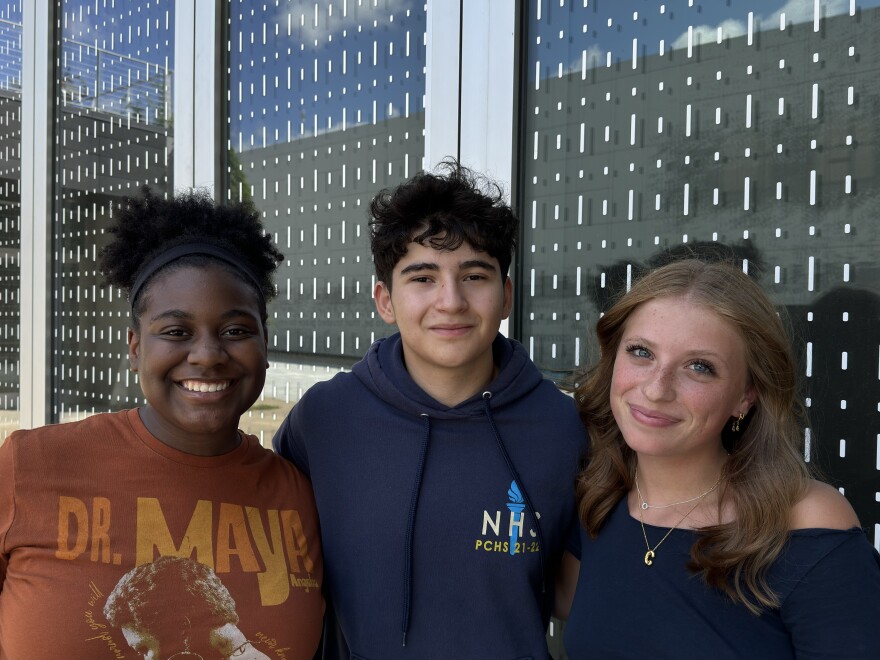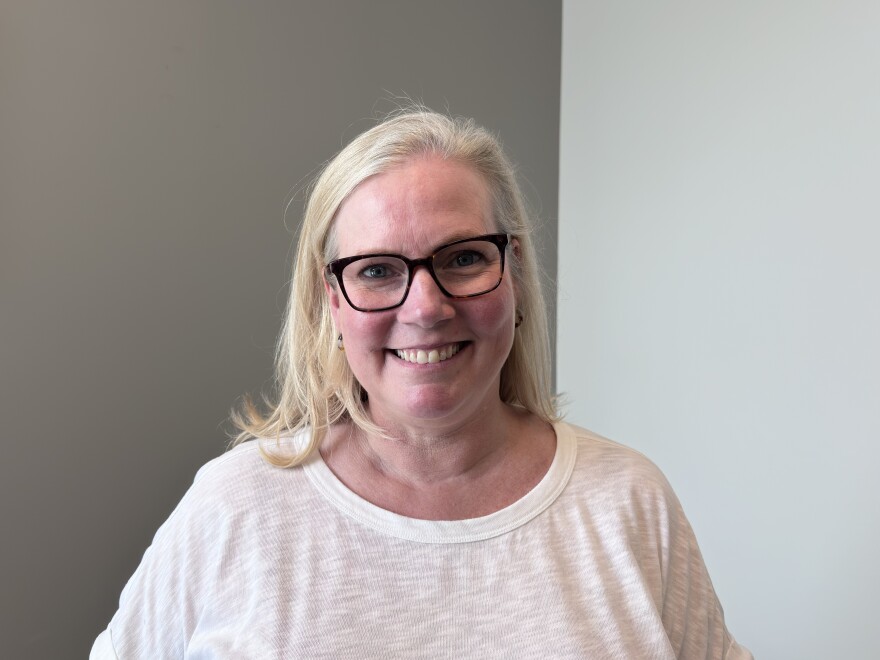Today’s media landscape feels boundless, with the consumption and production of information – both true and false – being easier than it’s ever been. The content overflow can be overwhelming and oftentimes challenging to sift through. It requires sharp critical thinking skills to determine what media is and isn’t worth ingesting.
Some states, including New Jersey and Illinois, have passed laws setting requirements for students to study media, but these are exceptions. Most students aren't exposed to media literacy in the classroom, as standardized K-12 media literacy education guidelines are absent from schools across the country.

On Tuesday’s St. Louis on the Air, high school and college students reflected on their approaches to navigating the current media landscape. They also described how media literacy is taught in their schools.
“Since elementary school until now, we've been taught to look for reliable resources,” said Parkway Central High School senior Diego Perez Palomino. “We've gotten a feel for what an authentic source, actual research, sounds like [and] feels like. I feel like that's something that has helped a lot of people. It's not that the current way that things are done makes people media illiterate. It doesn't have a negative effect. It could be better.”
Although Gen Z are digital natives and used to media’s rapid evolution, even they are susceptible to its pitfalls.

“When I get on social media and I see my peers posting certain things [...] you can just tell they didn't really do their research. They saw one Instagram post and ran with it. It's like, ‘What are we doing here?’" said St. Louis University college freshman Aylah Hopper. “We have the resources at our fingertips, literally. Our phones are in our hands all day, every day, 24/7, so it's a little disappointing that some people just believe anything and they don't fact-check or they don't get more information on it or they don't try to see the other side.”
Clayton High School senior Charlie Meyers noted how stunted media literacy can impact the way we speak to and connect with each other. She also theorized about what a possible media literacy class could look like.
“If a media literacy course were to be structured where it would be like, ‘How are we going to use what we learned in this class to have a productive conversation where we don't get hostile or polarized?’ Because that's something we've really lost as a society,” said Meyers. “We've really lost this nuance to be able to recognize that we can disagree with each other and still respect each other. If a media literacy class was structured in that way, I do think it would be really beneficial for a lot of people.”
To hear more from Aylah, Charlie and Diego and learn more about the importance of media literacy education from expert Donnell Probst, listen to St. Louis on the Air on Apple Podcasts, Spotify, YouTube or by clicking the play button below.
“St. Louis on the Air” brings you the stories of St. Louis and the people who live, work and create in our region. The show is produced by Ulaa Kuziez, Miya Norfleet, Emily Woodbury, Danny Wicentowski, Elaine Cha and Alex Heuer. Roshae Hemmings is our production assistant. The audio engineer is Aaron Doerr.







